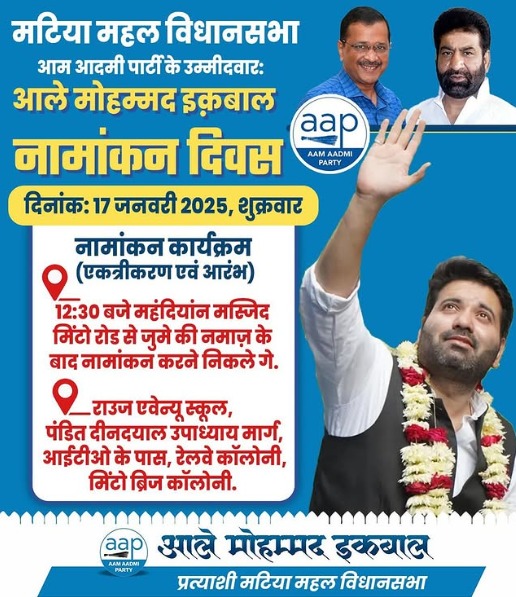New Delhi: Despite Urdu being recognised as the second official language in Delhi, it continues to face neglect, with the latest instance surfacing in the Delhi Assembly election campaigns. Both ruling and opposition parties, including the Aam Aadmi Party (AAP), Congress, BJP, and AIMIM, have sidelined Urdu in their election promotions and materials, causing disappointment among Urdu-speaking communities, reported the Urdu daily Inquilab.
Election banners, posters, and campaign materials are predominantly in Hindi, even in Muslim-majority constituencies. Social media accounts of candidates from these areas also reflect the same trend. Prominent Muslim candidates such as Imran Hussain, Amanatullah Khan, Ariba Khan, and others have shared campaign posts only in Hindi, overlooking Urdu entirely.
This marks a stark departure from previous elections, where both Muslim and non-Muslim candidates utilised Urdu in their campaigns, especially in areas with a significant Urdu-speaking population. However, this time, even constituencies like Chandni Chowk, known for its substantial Muslim demographic, lack any Urdu representation in election materials.
Dr. Syed Ahmed Khan, national president of Urdu Development Organisation, expressed regret over this negligence, emphasising that political leaders should reflect the linguistic and cultural identity of their constituencies. “Once, Urdu was a focal point in elections, with candidates pledging to promote the language. Today, even Urdu-speaking candidates have become indifferent,” he lamented.
He further criticised this disregard for Urdu, highlighting that as the second official language, its exclusion from election campaigns is unjustifiable. “Political leaders must include Urdu in their campaigns to respect the cultural fabric of the region,” he urged.
The absence of Urdu in election campaigns has left Urdu advocates disheartened, raising concerns about the diminishing visibility of the language in Delhi’s political and public domains.




